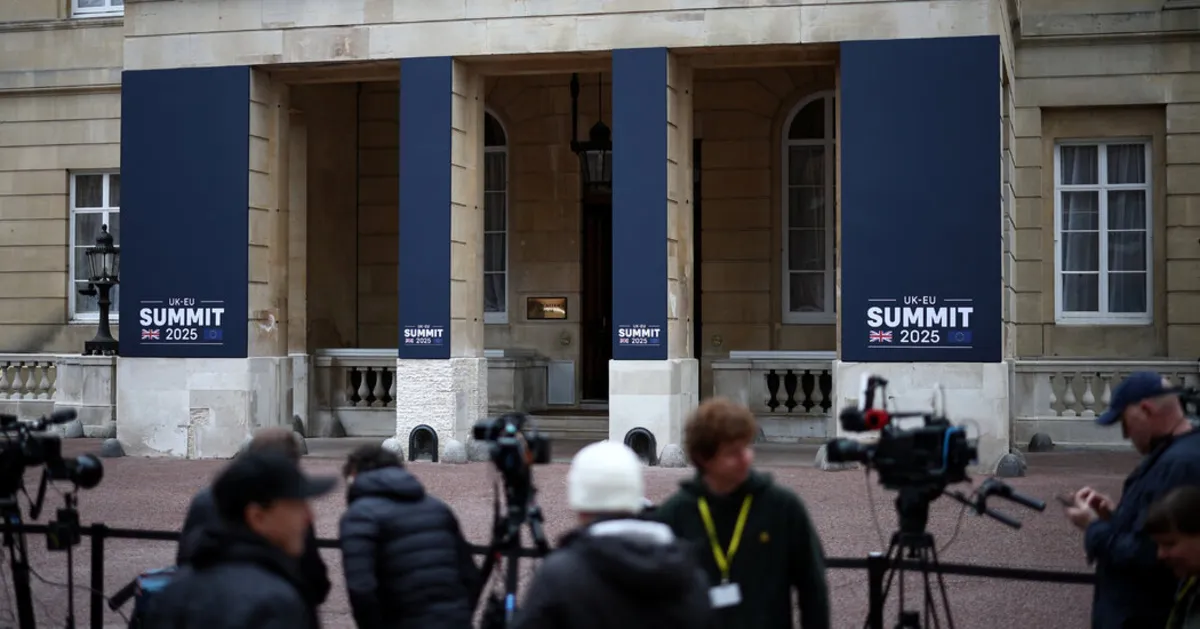
On Monday, Britain and the European Union reached a historic agreement aimed at enhancing security cooperation while alleviating some of the trade barriers that emerged following Brexit. This landmark deal signifies a pivotal moment for both parties, as they seek to collaborate more closely, especially in light of the United States' diminishing commitment to European security.
The agreement not only highlights the aspirations of British Prime Minister Keir Starmer for a comprehensive “reset” of relations with the 27-nation bloc but also comes nearly nine years after the Brexit referendum, in which British citizens narrowly voted to leave the European Union. This deal represents a significant step towards rebuilding ties that have been strained since that pivotal vote.
Nick Thomas-Symonds, a senior British minister closely involved in the negotiations, declared Monday a “historic day” on social media, emphasizing that the government has successfully secured a new agreement with the EU. He noted that this deal is beneficial for jobs, aims to reduce living costs, and enhances border security. Furthermore, he asserted that it reinstates Britain on the global stage, positioning the government to serve the interests of working people.
Despite the positive outlook, the agreement with the European Union—Britain's largest trading partner—remains politically contentious within the UK. Months of intense negotiations have led to this critical juncture, with one of the most contentious topics being the rights of European trawlers to fish in British territorial waters. In exchange for reducing trade barriers for British food products entering the EU’s expansive single market, the two sides have reached an accord allowing European fishing boats access to UK waters until June 30, 2038. This extension, while not the indefinite arrangement some European leaders hoped for, offers a significantly longer timeframe than what the UK initially proposed.
The agreement's details have been quickly scrutinized by Britain’s right-wing, pro-Brexit tabloids, with one publication labeling it a “surrender” to EU demands. This criticism underscores the ongoing tensions surrounding Brexit and the complexities of negotiating post-Brexit relations.
Given that Britain is one of Europe’s two principal military powers, the European Union has long sought a formal security pact with the UK. However, this notion was previously dismissed by the government under former Prime Minister Boris Johnson during Brexit negotiations. The changing geopolitical landscape, particularly the war in Ukraine and shifts in US foreign policy under former President Trump, have heightened the urgency for enhanced cooperation between Britain and the EU.
In addition to security matters, Britain is advocating for its companies to engage in a substantial 150 billion euro loan program intended to support joint defense procurement initiatives. This multifaceted agreement not only signifies a step towards strengthened ties but also reflects the evolving dynamics of international security and trade in the post-Brexit era.
This is a developing story, and we encourage readers to check back for updates as more information becomes available.